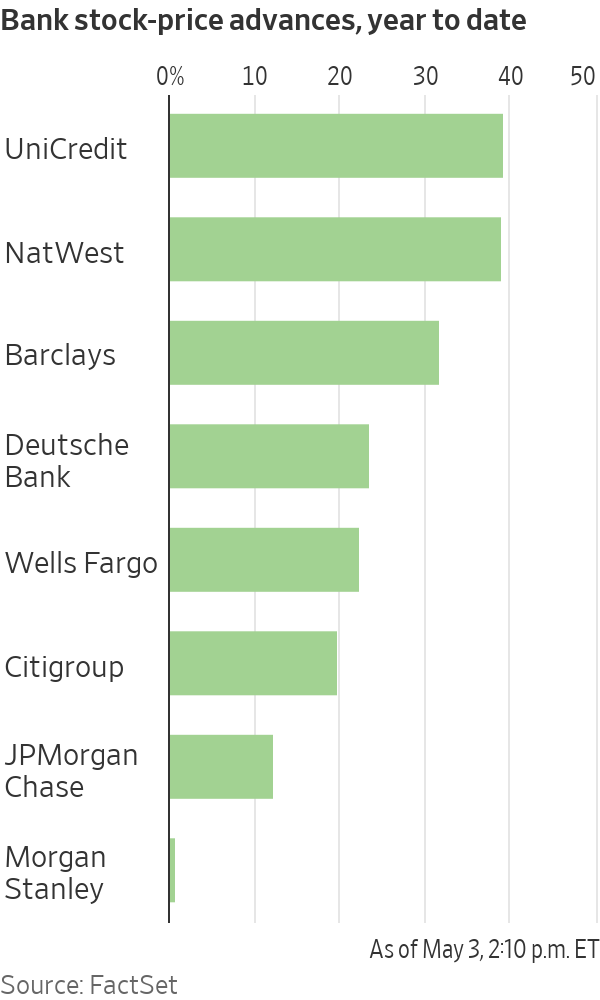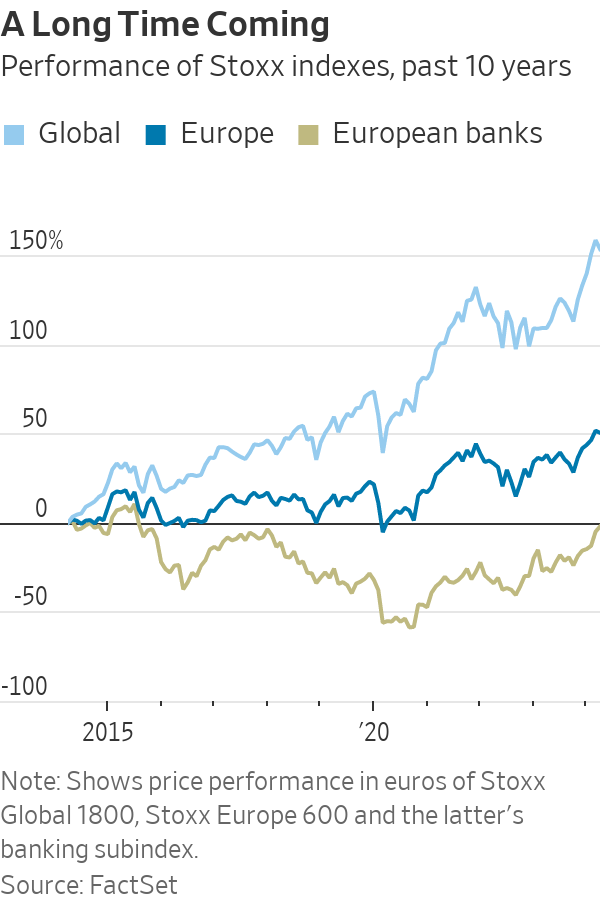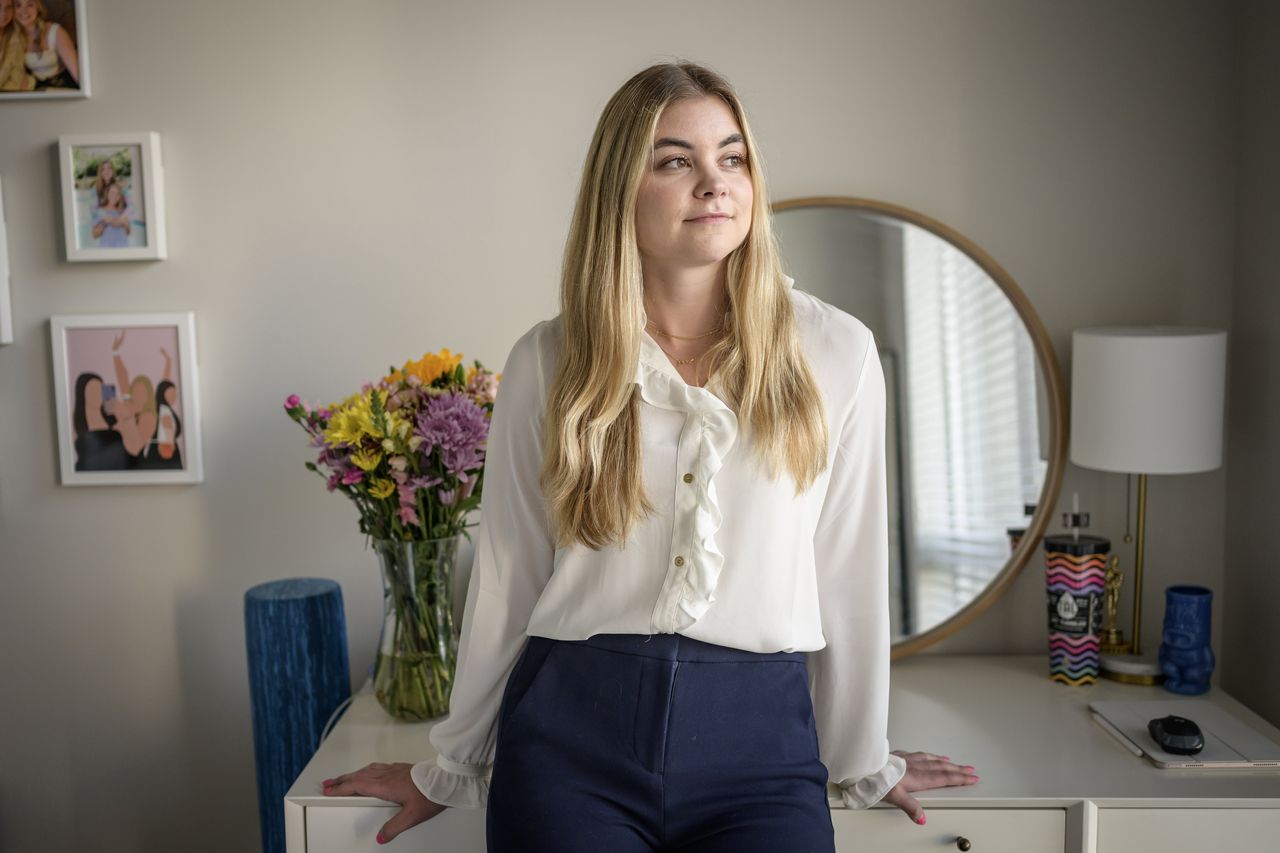Do Kwon’s Crypto Empire Fell in a $58 Billion Crash. He’s Got a New Coin.
Luna’s relaunch might be the ultimate act of chutzpah by the South Korean entrepreneur
Do Kwon used swagger and a cultlike Twitter following to build a cryptocurrency empire that collapsed last month in a $58 billion crash. Now, despite angry investors, government investigations and a crypto-market downturn, the South Korean entrepreneur is attempting a comeback.
“I have great confidence in our ability to build back even stronger than we once were,” Mr. Kwon told The Wall Street Journal.
Mr. Kwon has championed the launch of a new version of Terra, the blockchain network that underpinned the failed TerraUSD and Luna cryptocurrencies. TerraUSD was a so-called stablecoin designed to maintain its value at $1, but the coin is now valued at less than a penny. Its collapse triggered a plunge of more than 99% in Luna, the cryptocurrency that backed TerraUSD’s link to the dollar.
The implosion hurt thousands of investors world-wide, including many who put their savings in Anchor Protocol, a sort of crypto bank that offered high yields on TerraUSD deposits. The crash was also a foreshock to crypto-market carnage this month: a brutal selloff led lending platform Celsius Network to freeze all accounts, worth billions of dollars.
Since the TerraUSD crash, groups representing more than 90 people in South Korea have filed complaints against Mr. Kwon accusing him of fraud and illegal fundraising. A spokesperson for the Seoul Southern District Prosecutors’ Office confirmed that it was investigating the Luna and TerraUSD case but declined to provide details. One investor rang the doorbell at Mr. Kwon’s home in Seoul, prompting Mr. Kwon’s wife to seek police protection, according to local media reports. The investor—an internet personality who live streams about crypto—later said on his live stream channel that he had lost money on Luna and was looking to talk to Mr. Kwon in person.
Last week, a U.S. law firm representing a Chicago investor who suffered losses in the TerraUSD crash filed a suit seeking class-action status against Mr. Kwon, his company Terraform Labs and several other firms, accusing them of fraud and the sale of unregistered securities.
Terraform Labs said it wouldn’t comment on any active investigations. It said the lawsuit was meritless and said it intended to defend itself.
Mr. Kwon, 30 years old, said: “I’ve been devastated by recent events and hope that all the families who’ve been impacted are taking care of themselves and those that they love.”
Earlier this year, when Luna was trading near $100, analysts said Mr. Kwon was a billionaire, based on his holdings of the coin. Mr. Kwon said that was probably the case, though he had “never really counted”—and that he lost nearly all his net worth in the crash. “This doesn’t bother me,” he added. “I live a fairly frugal life.”
The launch of the new Terra blockchain took place in late May, after a majority of Luna holders approved the move in a shareholder-style vote. The near-worthless old version of Luna was renamed “Luna Classic,” and holders of TerraUSD and Luna Classic were given a new coin called Luna.
So far it hasn’t gone well: The new Luna began trading at $18.87 on May 28, tumbled right away and was recently trading at US$1.97, according to data provider CoinGecko.
“I don’t understand why anybody in their right mind would want to invest in Luna 2 after watching Luna 1 blow up so dramatically,” said Mati Greenspan, founder of crypto research firm Quantum Economics.
Supporters of the relaunch hope developers will build applications based on Terra technology, spurring activity that causes the new Luna to gain value. “Many builders are in the process of relaunching their apps on the new chain,” Mr. Kwon said.
The relaunch might be the ultimate act of chutzpah by Mr. Kwon, a man with a divided following within the crypto community. His admirers call themselves “Lunatics” and his critics consider him a snake-oil salesman.
“I feel really bad for Do because of the way his name is being dragged through the mud right now,” said Ronald AngSiy, an executive at Intellabridge Technology Corp., a company that allows people to earn interest on cash deposits by investing them in crypto.
Mr. AngSiy interacted with Mr. Kwon in business meetings and acted as an ambassador for Terra. He said he lost more than $1 million of his personal investments in the Luna crash, but maintained a high opinion of Mr. Kwon. “On Twitter he can come off as a megalomaniac, but he’s not like that in person,” he said.
Others in the crypto community say Mr. Kwon ran a sophisticated scam. “It was just really obvious from seeing how this guy tweeted, and how he spoke on camera, and how he carried himself that he was a fraudster,” said Cory Klippsten, chief executive of cryptocurrency firm Swan Bitcoin.
Mr. Kwon rejected Mr. Klippsten’s characterization. He noted that prominent players in the crypto industry had shared Mr. Kwon’s belief in the future of TerraUSD—known by its ticker UST—and that he personally lost money in the crash. “I made confident bets and made confident statements on behalf of UST because I believed in its resilience and its value proposition,” he said. “I’ve since lost these bets, but my actions 100% match my words. There is a difference between failing and running a fraud.”
Since its formation, Terraform Labs has raised more than $200 million from investors such as Coinbase Ventures and Mike Novogratz’s Galaxy Digital Holdings Ltd., according to PitchBook. Coinbase said its investment in Terraform Labs was small and it didn’t directly invest in either TerraUSD or Luna.
Mr. Kwon attended a prestigious foreign-language high school in Seoul, where he excelled at English-language debate, traveling to the World Schools Debating Championships with Team Korea three years in a row. People who knew him as a teenager described him as charismatic, with a penchant for saying controversial things that provoked his classmates.
He graduated from Stanford University with a degree in computer science in 2016. After working at Microsoft Corp. and Apple Inc. and founding an unsuccessful networking startup, Anyfi, he pivoted into crypto.
Mr. Kwon started Terraform Labs in 2018 with Daniel Shin, a respected figure in the Korean startup scene, to develop the Terra blockchain. Mr. Shin declined to comment for this article.
The project’s vision, according to a 2019 white paper co-written by Mr. Kwon, was to create a family of Terra stablecoins tied to the dollar, the Korean won and other traditional currencies. The idea was that people could use these coins—called TerraUSD, TerraKRW and so on—in everyday transactions. Unlike major stablecoins such as USD Coin, Terra stablecoins weren’t backed by real dollars or investments, instead using financial engineering to maintain price stability. Such a design made it harder for governments to control transactions, Mr. Kwon argued. He adopted the motto: “A decentralized economy needs decentralized money.”
Mr. Kwon often differentiated Terra from rival crypto projects by citing the use of its stablecoins by Chai, a South Korean payment app. Chai was launched in 2018 by Chai Corp., a startup founded by his partner Mr. Shin. The app initially used Terra to process payments, in a rare real-world use of blockchain technology. As Chai grew to serve millions of users, Mr. Kwon’s comments fueled the impression that there was a consistent base of users transacting with Terra stablecoins that could serve as a stabilizing force during market volatility.
But Mr. Kwon repeatedly overstated the links between his blockchain projects and Chai, according to a review of his past comments.
A Chai spokesperson said Messrs. Kwon and Shin parted ways in March 2020. By 2021, Chai was no longer using Terra’s blockchain technology or digital assets to process its payments or store its assets, the spokesperson said. Chai and Terra maintained only a marketing partnership that lasted from May 2021 to March 2022, according to the spokesperson.
Still, Mr. Kwon told one interviewer in April 2021 that 2.6 million Koreans were using Terra stablecoins for payments. He mentioned Chai’s use of Terra stablecoins on a podcast as recently as March this year.
Terraform Labs and Mr. Kwon said they had always sought to be truthful in their descriptions of Terra and Chai. They said Mr. Kwon’s comments were correct because of the partnership with Chai, in which the app’s users could convert Terra’s Korean won stablecoins into “Chai money” used to make payments. The Chai spokesperson said the feature, adopted in May 2021 as part of the partnership, was curtailed in scope after four months because of low demand. Today, none of Chai’s services are linked to Terra, the spokesperson said.
Several Terra team members quit in 2020 over discomfort with the direction that Mr. Kwon was taking the project, people familiar with the matter said. One of their concerns was Mr. Kwon’s insistence on setting a fixed yield for deposits in Anchor Protocol to attract users to TerraUSD, the people said. The team members said Mr. Kwon’s approach was unsustainable and urged a floating yield that would react to market conditions.
When Anchor went live in March 2021, its yield was set at about 20%, a lofty interest rate that drew billions of dollars of investors’ money into TerraUSD before its collapse. Terraform Labs declined to comment on former personnel, but noted that Anchor began to move away from having a fixed yield earlier this year.
Another concern that led to the team members’ departures was Mr. Kwon’s push to launch Mirror Protocol, a project they regarded as a violation of U.S. securities laws, the people said. Mirror Protocol was essentially a pseudo-stock market with digital coins that tracked the price of U.S. stocks such as Apple and Tesla Inc.
The project put Mr. Kwon in the crosshairs of the Securities and Exchange Commission, which began investigating Mirror Protocol last year. In September, the SEC served him with a subpoena at a crypto conference in New York. The next month, he sued the SEC in a bid to prevent the agency from enforcing the subpoena. A judge ruled against Mr. Kwon in February, and he lost his appeal earlier this month.
Terraform Labs said it has been complying with the process and relevant court orders. It said Mirror Protocol wasn’t a market or exchange as defined by U.S. law. An SEC spokesperson declined to comment.
As TerraUSD swelled in size, critics—including academics, crypto fund managers and Mr. Kwon’s competitors—warned it was prone to collapse. They noted that similar algorithmic stablecoins had failed in so-called death spirals after the mechanisms tying them to the dollar broke down.
Mr. Kwon dismissed such critics on Twitter. In March, he called people who said TerraUSD could lose its peg “idiots.” Last year, after U.K.-based financial blogger and crypto skeptic Frances Coppola raised concerns about bank runs on crypto-lending platforms, Mr. Kwon tweeted: “I don’t debate the poor on Twitter, and sorry I don’t have any change on me for her at the moment.”
“He was very rude to me,” Ms. Coppola said. Asked about the tweets, Mr. Kwon told the Journal: “Do I regret some of the things I said in the past? Yes.”
Reprinted by permission of The Wall Street Journal, Copyright 2021 Dow Jones & Company. Inc. All Rights Reserved Worldwide. Original date of publication: July 22, 2022.
This stylish family home combines a classic palette and finishes with a flexible floorplan
Just 55 minutes from Sydney, make this your creative getaway located in the majestic Hawkesbury region.
Shares in European banks such as UniCredit have been on a tear
After years in the doldrums, European banks have cleaned up their balance sheets, cut costs and started earning more on loans.
The result: Stock prices have surged and lenders are preparing to hand back some $130 billion to shareholders this year. Even dealmaking within the sector, long a taboo topic, is back, with BBVA of Spain resurrecting an approach for smaller rival Sabadell .
The resurgence is enriching a small group of hedge funds and others who started building contrarian bets on European lenders when they were out of favour. Beneficiaries include hedge-fund firms such as Basswood Capital Management and so-called value investors such as Pzena Investment Management and Smead Capital Management.
It is also bringing in new investors, enticed by still-depressed share prices and promising payouts.
“There’s still a lot of juice left to squeeze,” said Bennett Lindenbaum, co-founder of Basswood, a hedge-fund firm based in New York that focuses on the financial sector.
Basswood began accumulating positions around 2018. European banks were plagued by issues including political turmoil in Italy and money-laundering scandals . Meanwhile, negative interest rates had hammered profits.
Still, Basswood’s team figured valuations were cheap, lenders had shored up capital and interest rates wouldn’t stay negative forever. The firm set up a European office and scooped up stock in banks such as Deutsche Bank , UniCredit and BNP Paribas .
Fast forward to 2024, and European banking stocks are largely beating big U.S. banks this year. Shares in many, such as Germany’s largest lender Deutsche Bank , have hit multiyear highs .

A long-only version of Basswood’s European banks and financials strategy—which doesn’t bet on stocks falling—has returned approximately 18% on an annualised basis since it was launched in 2021, before fees and expenses, Lindenbaum said.
The industry’s turnaround reflects years spent cutting costs and jettisoning bad loans, plus tougher operating rules that lifted capital levels. That meant banks were primed to profit when benchmark interest rates turned positive in 2022.
On a key measure of profitability, return on equity, the continent’s 20 largest banks overtook U.S. counterparts last year for the first time in more than a decade, Deutsche Bank analysts say.
Reflecting their improved health, European banks could spend almost as much as 120 billion euros, or nearly $130 billion, on dividends and share buybacks this year, according to Bank of America analysts.
If bank mergers pick up, that could mean takeover offers at big premiums for investors in smaller lenders. European banks were so weak for so long, dealmaking stalled. Acquisitive larger banks like BBVA could reap the rewards of greater scale and cost efficiencies, assuming they don’t overpay.
“European banks, in general, are cheaper, better capitalised, more profitable and more shareholder friendly than they have been in many years. It’s not surprising there’s a lot of new investor interest in identifying the winners in the sector,” said Gustav Moss, a partner at the activist investor Cevian Capital, which has backed institutions including UBS .
As central banks move to cut interest rates, bumper profits could recede, but policy rates aren’t likely to return to the negative levels banks endured for almost a decade. Stock prices remain modest too, with most far below the book value of their assets.
Among the biggest winners are investors in UniCredit . Shares in the Italian lender have more than quadrupled since Andrea Orcel became chief executive in 2021, reaching their highest levels in more than a decade.
Under the former UBS banker, UniCredit has boosted earnings and started handing large sums back to shareholders , after convincing the European Central Bank the business was strong enough to make large payouts.
Orcel said European banks are increasingly attracting investors like hedge funds with a long-term view, and with more varied portfolios, like pension funds.
He said that investor-relations staff initially advised him that visiting U.S. investors was important to build relationships—but wasn’t likely to bear fruit, given how they viewed European banks. “Now Americans ask you for meetings,” Orcel said.
UniCredit is the second-largest position in Phoenix-based Smead Capital’s $126 million international value fund. It started investing in August 2022, when UniCredit shares traded around €10. They now trade at about €35.
Cole Smead , the firm’s chief executive, said the stock has further to run, partly because UniCredit can now consider buying rivals on the cheap.
Sentiment has shifted so much that for some investors, who figure the biggest profits are to be made betting against the consensus, it might even be time to pull back. A recent Bank of America survey found regional investors had warmed to European banks, with 52% of respondents judging the sector attractive.

And while bets on banks are now paying off, trying to bottom-fish in European banking stocks has burned plenty of investors over the past decade. Investments have tied up money that could have made far greater returns elsewhere.
Deutsche Bank, for instance, underwent years of scandals and big losses before stabilising under Chief Executive Christian Sewing . Rewarding shareholders, he said, is now the bank’s priority.
U.S. private-equity firm Cerberus Capital Management built stakes in Deutsche Bank and domestic rival Commerzbank in 2017, only to sell a chunk when shares were down in 2022. The investor struggled to make changes at Commerzbank.
A Cerberus spokesman said it remains “bullish and committed to the sector,” with bank investments in Poland and France. It retains shares in both Deutsche and Commerzbank, and is an investor in another German lender, the unlisted Hamburg Commercial Bank.
Similarly, Capital Group also invested in both Deutsche Bank and Commerzbank, only to sell roughly 5% stakes in both banks in 2022—at far below where they now trade. Last month, Capital Group disclosed buying shares again in Deutsche Bank, lifting its holding above 3%. A spokeswoman declined to comment.
U.S.-based Pzena, which manages some $64 billion in assets, has backed banks such as UBS and U.K.-listed HSBC , NatWest and Barclays .
Pzena reckoned balance sheets, capital positions and profitability would all eventually improve, either through higher interest rates or as business models shifted. Still, some changes took longer than expected. “I don’t think anyone would have thought the ECB would keep rates negative for eight or nine years,” said portfolio manager Miklos Vasarhelyi.
Some Pzena investments date as far back as 2009 and 2010, Vasarhelyi said. “We’ve been waiting for this to turn for a long time.”
This stylish family home combines a classic palette and finishes with a flexible floorplan
Just 55 minutes from Sydney, make this your creative getaway located in the majestic Hawkesbury region.


















